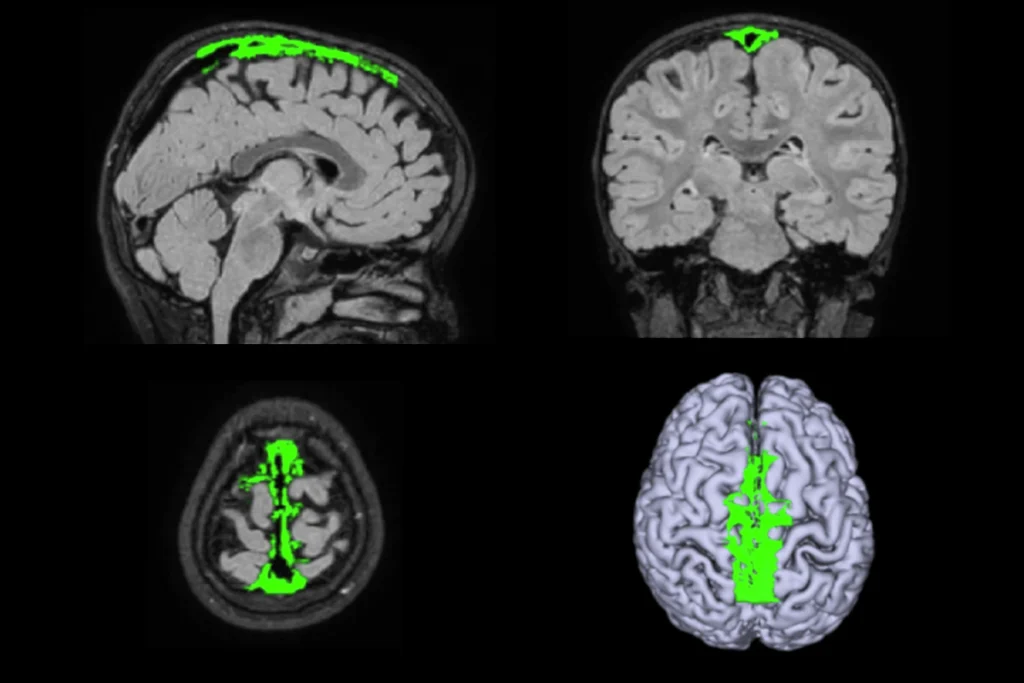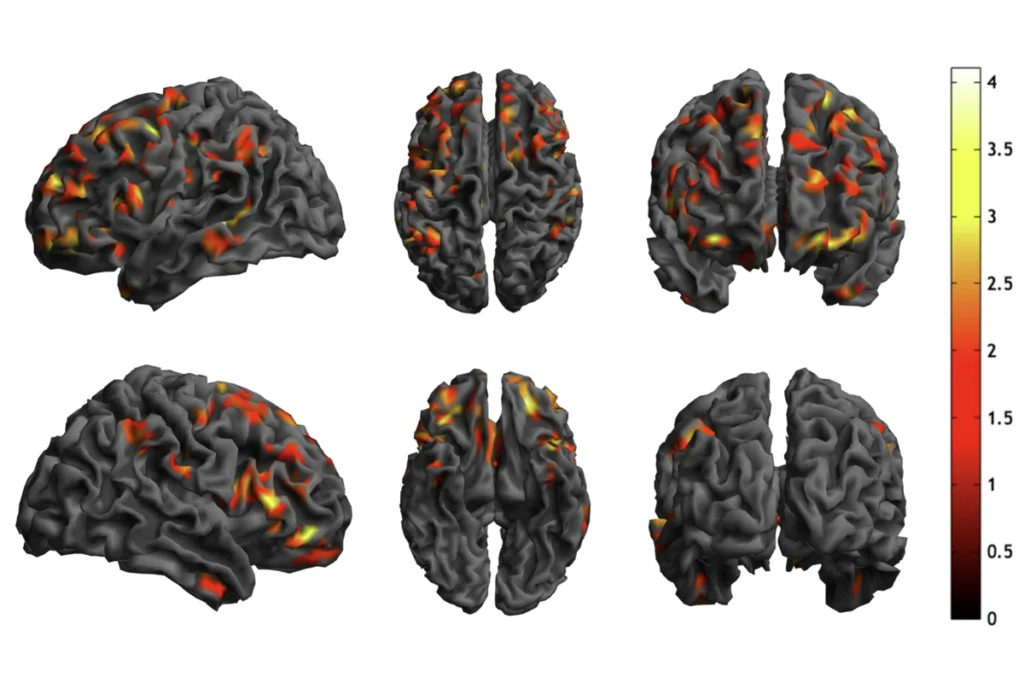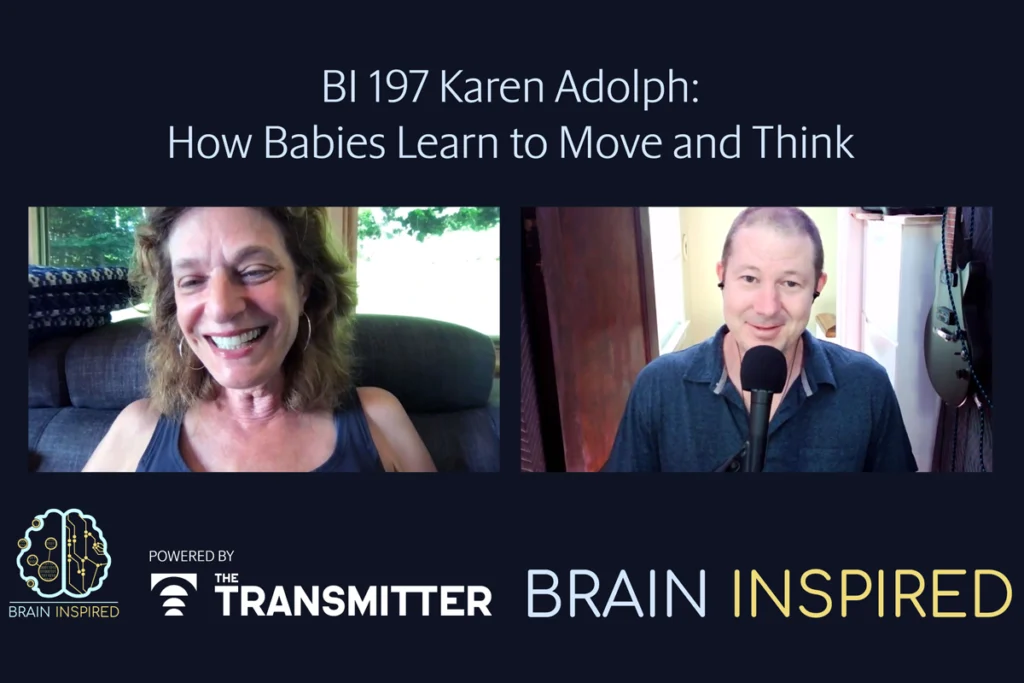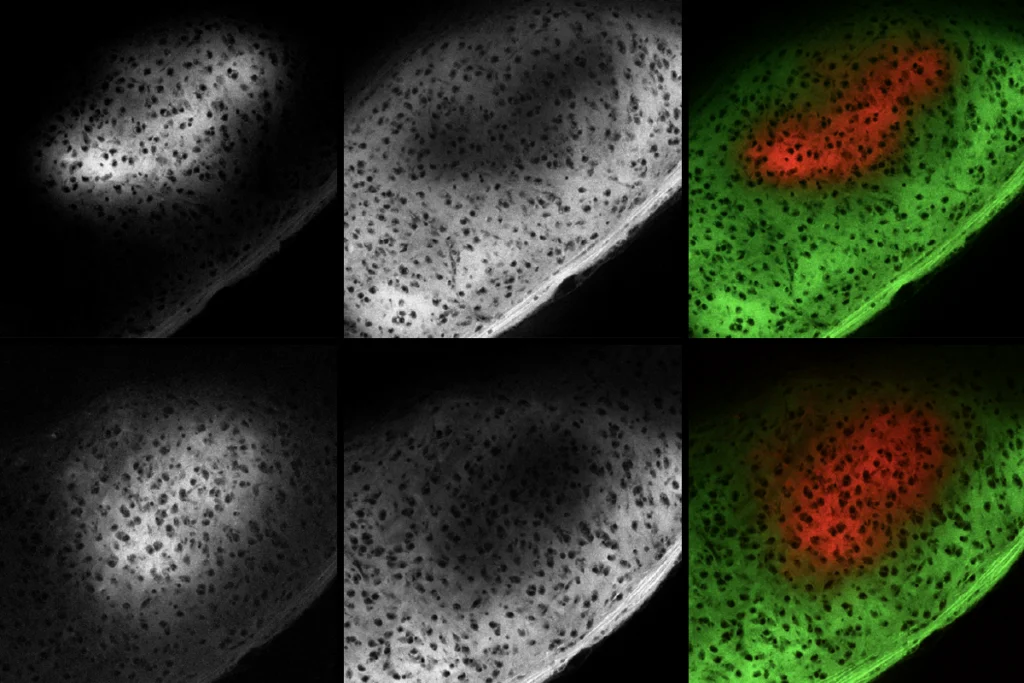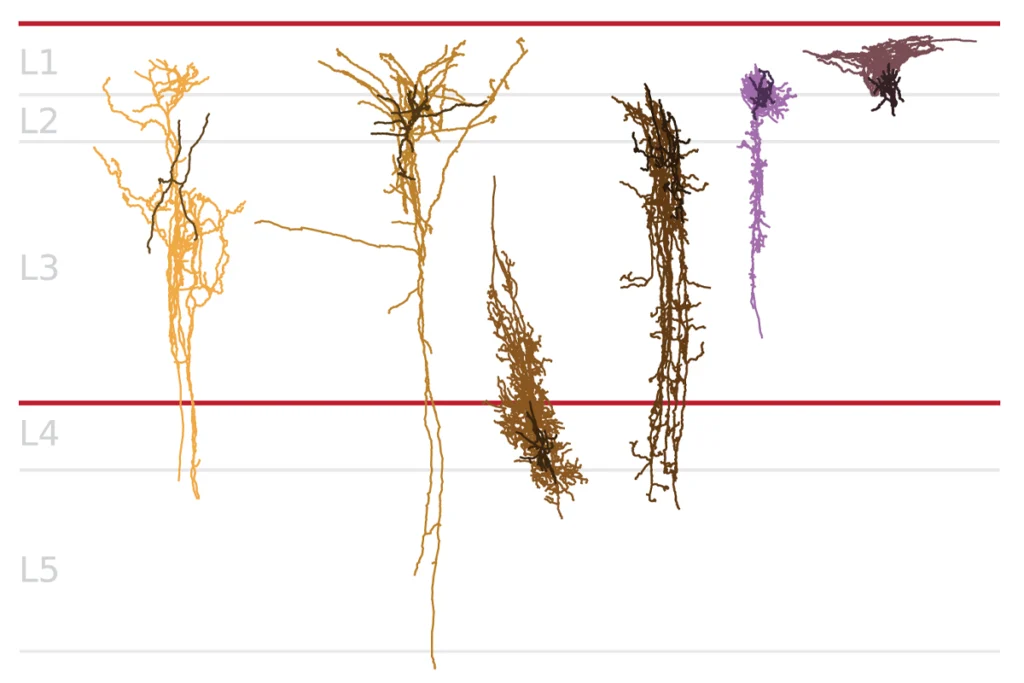- Mice missing one copy of the DSCAM gene, which is associated with autism and Down syndrome, show autism-like hyperactivity, anxiety, and motor and memory problems, according to a preprint. bioRxiv
- Knocking out the autism-linked SHANK3 gene in hippocampal neurons in the ventral CA1 area disrupts social memory in mice. Nature Communications
- The size of brain cortical organoids, derived from autistic toddlers’ stem cells and grown for two months, appears to be related to the severity of social-communication issues, according to a small study. Molecular Autism
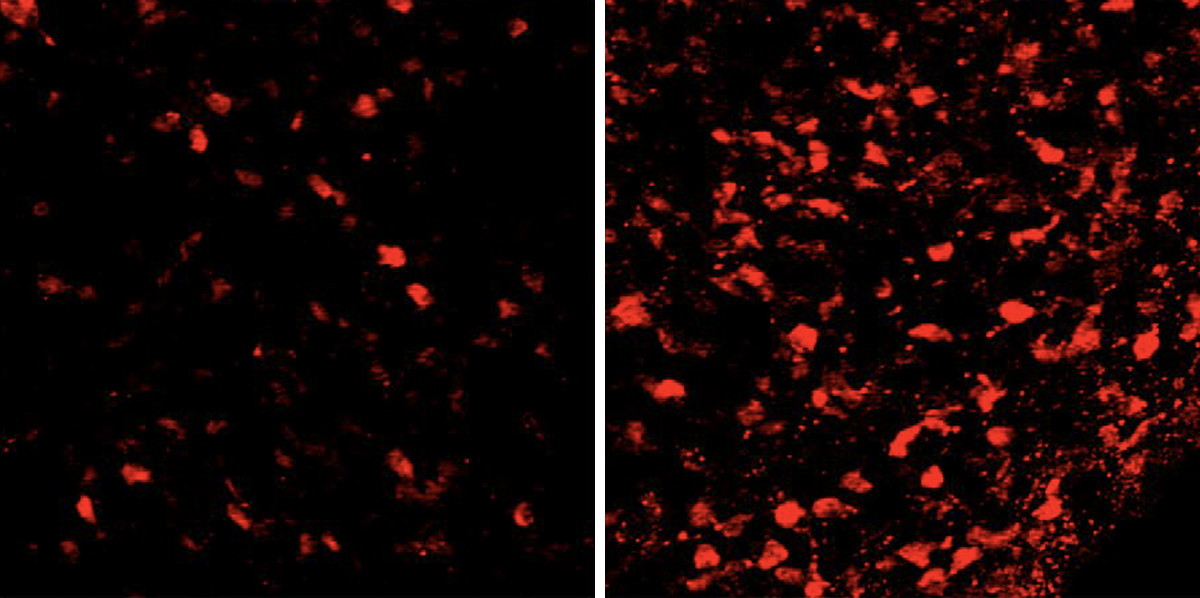
Population growth: Neurons mature faster in a brain organoid derived from an autistic toddler’s stem cells (right) compared with those from a non-autistic child’s stem cells (left).
- Incorporating parent reports of children’s sleep issues does not improve the accuracy of the screening instrument M-CHAT-R in predicting an autism diagnosis. Pediatric Research
- Stem cells derived from people with tuberous sclerosis complex differentiate into neurons with altered expression of proteins involved in lineage commitment and electrical activity, according to a preprint. bioRxiv
- Infants who are later diagnosed with autism differ from their peers in ways that appear to influence the social interactions of others, including how caregivers greet these children. Proceedings of the Royal Society B
- A new funding opportunity for intellectual and developmental disability research centers, funded by the National Institute of Child Health and Human Development, is slated for a 26 July announcement. nih.gov
